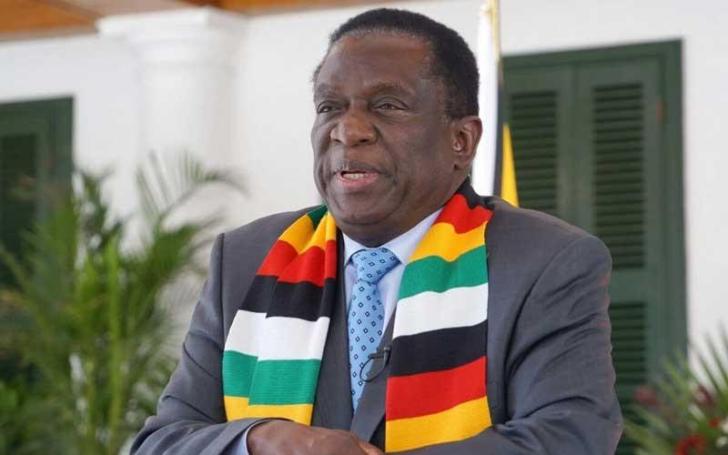News / National
'Mnangagwa in constitutional violation over security minister'
18 Nov 2024 at 15:05hrs |
0 Views

President Emmerson Mnangagwa is facing criticism for allegedly violating the Constitution by failing to appoint a Minister of Intelligence, a key position mandated by Zimbabwe's supreme law. The accusation was raised in Parliament last week by Hatcliffe legislator, Agency Gumbo (CCC), who pointed out the President's failure to fulfill this constitutional obligation when he announced his cabinet following the disputed 2023 general elections.
In his remarks, Gumbo referenced Section 225 of the Constitution, which explicitly stipulates that the President must appoint a minister responsible for intelligence services. "The Constitution is very clear, Mr. Speaker, that the President must appoint a Minister to be responsible for any intelligence service," Gumbo said during the parliamentary session. "Yet, when the President gazetted the list of cabinet appointments, there was no mention of a Minister for Intelligence or National Security."
The last person to hold the intelligence portfolio was former Minister Owen "Mudha" Ncube, who was dismissed from the position in 2022 following allegations of "inappropriate conduct." Despite this, the post has remained vacant, leading to concerns about the lack of oversight and the potential security risks posed by the absence of a dedicated minister in charge of national security.
Gumbo emphasized that the Constitution's language, using the term "must," leaves no room for discretion, underscoring that the President is legally bound to appoint someone to this critical role. "It is clear, Mr. Speaker, that a year after the election and into the second session of the 10th Parliament, there is still no minister in charge of national security," he said.
The absence of an Intelligence Minister has raised significant concerns about the country's national security. Gumbo, who described the matter as non-partisan, stressed that the issue affects all Zimbabweans. "Without a Minister of National Security, we are unable to hold the executive accountable on critical national security matters," he added, pointing out the crucial oversight role that Parliament plays in these issues.
This is not the first time President Mnangagwa has faced scrutiny over constitutional matters. Last year, he was forced to reverse the unconstitutional appointment of Zimbabwe Defence Forces Commander General Phillip Valerio Sibanda to the Zanu-PF politburo, after it was revealed that the move violated the Constitution. Similarly, after the 2023 elections, Mnangagwa was compelled to withdraw the appointments of Nokuthula Matsikenyere and John Paradza as ministers due to their status as non-lawmakers at the time of their appointments.
As the issue of the Intelligence Minister continues to stir debate, it remains to be seen how the President will address the growing calls for adherence to constitutional mandates.
In his remarks, Gumbo referenced Section 225 of the Constitution, which explicitly stipulates that the President must appoint a minister responsible for intelligence services. "The Constitution is very clear, Mr. Speaker, that the President must appoint a Minister to be responsible for any intelligence service," Gumbo said during the parliamentary session. "Yet, when the President gazetted the list of cabinet appointments, there was no mention of a Minister for Intelligence or National Security."
The last person to hold the intelligence portfolio was former Minister Owen "Mudha" Ncube, who was dismissed from the position in 2022 following allegations of "inappropriate conduct." Despite this, the post has remained vacant, leading to concerns about the lack of oversight and the potential security risks posed by the absence of a dedicated minister in charge of national security.
The absence of an Intelligence Minister has raised significant concerns about the country's national security. Gumbo, who described the matter as non-partisan, stressed that the issue affects all Zimbabweans. "Without a Minister of National Security, we are unable to hold the executive accountable on critical national security matters," he added, pointing out the crucial oversight role that Parliament plays in these issues.
This is not the first time President Mnangagwa has faced scrutiny over constitutional matters. Last year, he was forced to reverse the unconstitutional appointment of Zimbabwe Defence Forces Commander General Phillip Valerio Sibanda to the Zanu-PF politburo, after it was revealed that the move violated the Constitution. Similarly, after the 2023 elections, Mnangagwa was compelled to withdraw the appointments of Nokuthula Matsikenyere and John Paradza as ministers due to their status as non-lawmakers at the time of their appointments.
As the issue of the Intelligence Minister continues to stir debate, it remains to be seen how the President will address the growing calls for adherence to constitutional mandates.
Source - The Chronicle
Join the discussion
Loading comments…






























